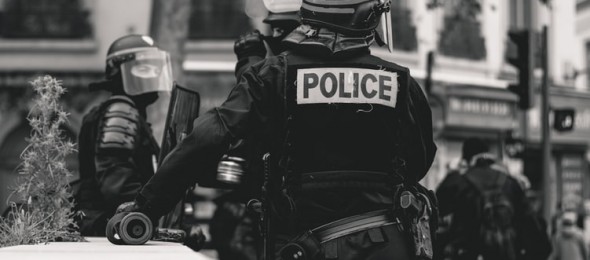The process of mediation can be utilized to resolve many different types of disputes. A form of mediation that is not often explored is community-police mediation, which is used to resolve citizen complaints against police officers. Achieving an understanding on both sides of a dispute is the main goal of community-police mediation and the process is deemed unsuccessful if the two cannot come to an agreement.
In 2002, the United States Department of Justice, Office of Community Oriented Policing Services released a complete guide for the implementation of community-police mediation. According to the guide, not all topics are eligible community- mediation. Eligible topics include officer threats to seize or damage property and stop and frisk measures. Ineligible cases consist of use of force allegations and other, more serious allegations involving physical injury. Racial and ethnic-related complaints are sensitive topics for mediation, and some argue allegations of racial, ethnic, or gender slurs should not be mediated at all.
There are many success stories related to community-police mediation. Often, they involve a wide variety of nontraditional outcomes that may reach beyond the mediation session. According to the DOJ:
In perhaps the most notable example found in the course of preparing this report, a white officer in one city accompanied a middle-aged African-American man to church on Sunday morning. The officer had used an offensive racial epithet in addressing the man, who told mediation officials, “He treated me like a dog. I just wish he could see me in church on Sunday to see what kind of person I really am.” The mediation officials suggested that he propose this as a mediation outcome. The officer accepted, and reportedly the two had coffee together after church. This case is probably the most notable example of racial bridge building.
More recently, the New Orleans Community-Police Mediation Program has enjoyed success at the local level. The program’s website includes quotes regarding the police-mediation process from a civilian, an officer, and a mediator who have participated in the process.
The civilian said:
I liked to be able to share my perspective with the officer and that he was able to understand my point of view and apologize about the way he approached me.
The quoted officer stated:
We were able to sit down face to face and talk about our perceptions of each other, how she perceived me as a white officer and how I perceived her as a young, black person. We had a good lengthy discussion about race in a safe space we couldn’t have during our first encounter. I didn’t want to go into it but she brought up race so the mediators invited us to talk about it since it was important to her. Although I was uncomfortable at first, I realized how important it was to her. It was eye-opening for me as I’ve never had these conversations with someone of color and I’m old. I was able to tell her what the policy was and why I acted the way I did and she also shared how she felt about how I treated her. Please tell anyone in the community or in the police they can contact me if they want to know more about mediation. This is good for our city.
The mediator added:
I am awestruck by the ability and willingness of mediation participants to confront some of the most contentious issues affecting community-police relations in New Orleans and around the country, from issues of race and aggression, to notions of service, courtesy, and shared responsibility.
This positive feedback for the New Orleans Community-Police Mediation Program is a good indicator that the program can work and make a positive impact on the participants. Based on these success stories, more communities should feel comfortable about implementing a similar community-police mediation program. Ultimately, however, the success of any community-police mediation relies on the willingness of both a civilian and a police officer to establish an understanding, take corrective actions, and make amends.














